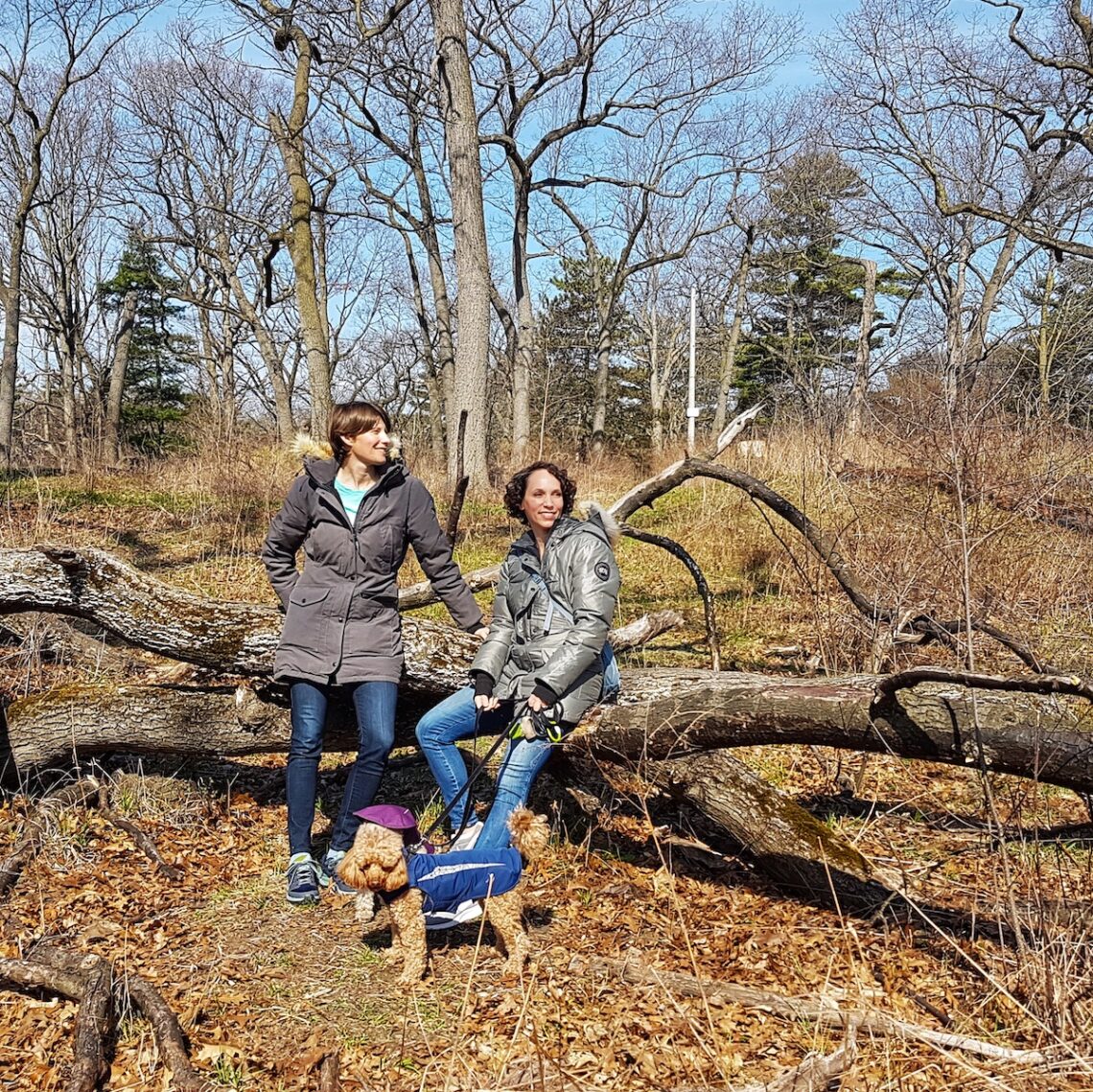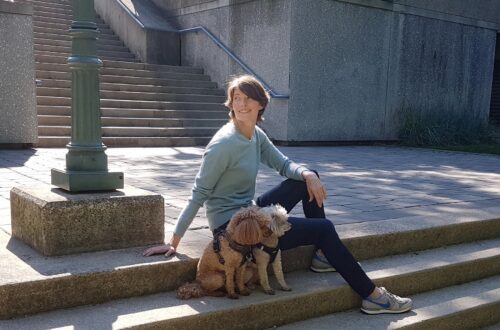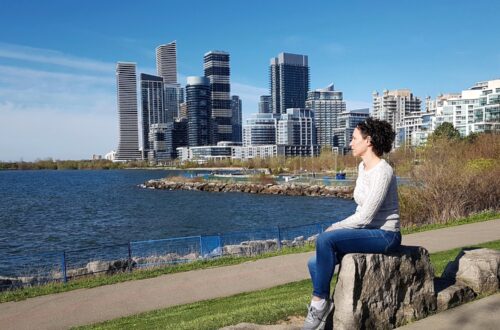
Is This the Year You Can Finally Quit?
It’s the number one question that we get asked time and time again. How did we know we had saved enough? How did we know that we were finally ready to say goodbye to work?
So many people on the path to financial independence just get stuck. When it comes time to finally retire and begin the next chapter, they don’t feel ready. Maybe it’s because they feel unsure about their numbers. Maybe they’re not ready to step away from the career they’ve built over 20 plus years.
We hear you. We were in the same position just a few years ago. On paper, we were ready to retire but there was so much holding us back, both financially and emotionally.
We’re full time travelers today but just a few years ago we were expats working in Singapore. We were very busy climbing that corporate ladder and feeling like that was the only route to success. We were desperate for downtime but always put our careers first. In between the endless meetings and the emails and working through the weekends, we dreamed that life could somehow be different. We wanted to escape the pressure of corporate jobs. But we had no idea what this different life could look like or how we could possibly achieve it.
We wanted to see more of the world. That’s why we moved to Singapore to begin with. And we were having great vacations where we got to travel all over Asia. But those were tiny tasters of the life we really wanted. We crammed so many experiences into those vacations that they were often just as exhausting as being at work. We really thought it was important for our careers and our identities to be in these high pressure jobs. And the stress of our jobs led us to have a very expensive lifestyle. We ate out in fancy restaurants; we went to a pricey boutique gym; we took expensive vacations just like everyone we knew. And all this was in one of the most high-cost countries in the world.
At one point, I proposed to Gillian that we have an annual budget for our vacations so at least we can cap some of our discretionary spending. She said: “That’s the one area of our budget I’m not willing to cap. Those trips were the reason I’m working and the only thing that keeps me sane.”
This is a perfect example of how we were just getting deeper in the trap. After a particularly tough year at work, it was annual review and bonus time. I had really given it my all that year: my evenings, my weekends, my health. I was totally burnt out. And what I got in return was…thanks for doing a decent job; here’s some extra money. And I realized that no amount of bonus money was going to give me back those weekends or make up for all my stress. My identity and life could no longer revolve around my job. And that’s when we discovered the concept of financial independence and the FIRE movement.
Mind you, Gillian had always known that if we had enough invested, at some point it would pay for our lifestyle and we’d no longer need to work. What neither of us was aware of was the community of people who have already retired early or are well on their way towards this goal.
These are people who have learned about what’s referred to as the 4% rule.
This rule states that if you save and invest 25 times your annual cost of living, you should have enough money to live on for the rest of your life. Of course, you then need to keep your living expenses at 4% of your total investments. Hence the 4% rule, although this is a very simplistic overview.
All of this sounds good on paper, but having the confidence to take the leap is another story. Now, despite all our lifestyle inflation, we had actually been tucking money into our investments throughout our entire careers. We realized that with a little extra saving, financial independence was actually within reach.
But we had major doubts. First of all, I was very hesitant to give up my career, salary and status all because we listened to a few podcasts about financial independence. We didn’t personally know anyone else doing anything like this and it seemed a little crazy. Also, how could we be sure the numbers would work? Could we really come up with an amount that could handle everything life might throw at us? Or would we be so scared to spend money that we’d end up living ultra frugally. Which for us would not be enjoyable at all.
The first big issue we had to tackle were our inflated ideas of how much we’d need in retirement. After all, we’d been living in high cost Singapore all this time. Our apartment rental alone cost over $3,000 USD a month. And we spent a lot to offset the pressures of work. Dinners out, vacations, nice clothes, whatever luxuries that could help us forget our stress. We realized we needed a much better handle on our cost of living for two reasons. First we needed to reduce our massive discretionary spending so that we could get to financial independence sooner. Second we needed an accurate picture of what our spending would be once we retired.
That led to the next obstacle. We had no idea what we would do if we weren’t working anymore. Yes, we wanted to travel but where would we go, what would we do, how long would we stay. Could we really spend our lives being tourists.
Working together, eventually a dream took shape. We started to picture a life of travel where we spend a month or two in each country. We could really immerse ourselves in the culture instead of just breezing through and ticking off the top sights.
But we’re still weren’t 100% sold on the idea of financial independence and retiring early. The whole concept of saving up 25 times your annual expenses and living off 4% seemed very risky. What if the market crashes right after we retire? What if we’re suddenly facing down huge unexpected expenses?
We wanted to believe in the math but were we really prepared to gamble our careers and security and future earning potential on the 4% rule?
As we went deeper into the blogs and podcasts, what we discovered was that 4% is just a starting place. In fact, the cautious people like us prefer to save up 33 times their annual expenses or even more. So 4% becomes 3% or maybe even 2.5%.
Once we found a number that was comfortable for us, we realized that our ultimate obstacle to retiring early wasn’t financial. It was emotional. Were we really prepared to walk away from the careers we spent 20 plus years building? That included years of training, three graduate degrees between the two of us and all the networking to land our jobs in Singapore. I’d spent years creating my perfect Linkedin profile; was I really going to just give it all up?
Yes, we were living the dream. We had great jobs, the career track, the expat lifestyle in Singapore. It just wasn’t our dream anymore. And when we finally, finally admitted that to ourselves, we were ready to start that next chapter.
Sure, we would be giving up our identities as working professionals. But we would create new identities and those identities will evolve over the course of our retirement. Once we realized that we were emotionally ready to begin a new life, the rest fell into place very quickly.
We decided what we wanted our new life to look like and we figured out how much it would cost. We fine tuned our financial independence number, working with a fairly conservative less than 3%. And we prepared ourselves to be people who weren’t chained to the office anymore. Instead we were going to be seeing the world and pursuing our dreams.
And here we are today. We’re traveling the world. Our time is our own. We never have to go on another job interview again. And we couldn’t be happier. All we needed to do was take control of our finances so that we could finally take control of our lives.





2 Comments
Pingback:
Pingback: